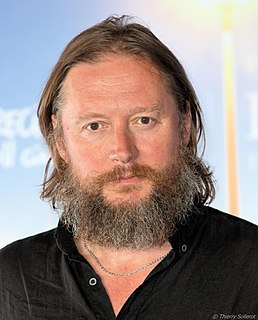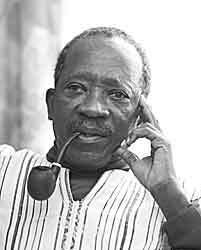A Quote by Orson Welles
. . . you [film critics] always overstress the value of images. You judge films in the first place by their visual impact instead of looking for content. This is a great disservice to the cinema. It is like judging a novel only by the quality of its prose. I was guilty of the same sin when I first started writing for the cinema. . . . Now I feel that only the literary mind can help the movies out of that cul de sac into which they have been driven by mere technicians and artificers.
Quote Topics
Related Quotes
Plays are literature: the word, the idea. Film is much more like the form in which we dream - in action and images (Television is furniture). I think a great play can only be a play. It fits the stage better than it fits the screen. Some stories insist on being film, can't be contained on stage. In the end, all writing serves to answer the same question: Why are we alive? And the form the question takes - play, film, novel - is dictated, I suppose, by whether its story is driven by character or place.
In Hollywood, story content of movies follows a hierarchy of power, not the relative quality of various ideas. Hollywood does not lack for quality writing. It's just that quality writing commonly has to be sacrificed in order to propel a film into production. A studio needs a star and a director to make a film, so those are the folk who'll define the content. If they don't have the same creative sensibilities, then the content will change.
I think what I loved in cinema - and what I mean by cinema is not just films, but proper, classical cinema - are the extraordinary moments that can occur on screen. At the same time, I do feel that cinema and theater feed each other. I feel like you can do close-up on stage and you can do something very bold and highly characterized - and, dare I say, theatrical - on camera. I think the cameras and the viewpoints shift depending on the intensity and integrity of your intention and focus on that.
Event cinema is what it is, and I understand why it's successful. It started with things like 'Jaws,' which are extraordinary movies. But what we've lost are great character films which are beautifully directed and had great movie stars in them. Films that were about something rather than about spectacle.
I think cinema is needed throughout Africa, because we are lagging behind in the knowledge of our own history. I think we need to create a culture that is our own. I think that images are very fascinating and very important to that end. But right now, cinema is only in the hands of film-makers because most of our leaders are afraid of cinema.
'Jaws' has turned into one of those films that when you see it on TV, you turn it on, and you can't turn it off. So, in that regard, I've seen it a million times. It's the only film I'm aware of that could be released now for the first time and have the same impact that it did then. You can't say that about a lot of movies.
I've seen films that have made as much as $100, $200 million, but they're not films. They're images. They're flashes. They're many beautiful images, lots of things to look at. They capture you. But it's not a film. It's not something that involves you in a story. They go to cinema now to be blown away by the effects.
Cinema is a visual language, and you're always looking for visual metaphors for things. You know, if I was writing a play about Howard Hughes, I could have him give a monologue about how he's terrified to touch a doorknob. But on screen, you know, working with Marty Scorsese in 'The Aviator,' that became the series of images that told a story.



































